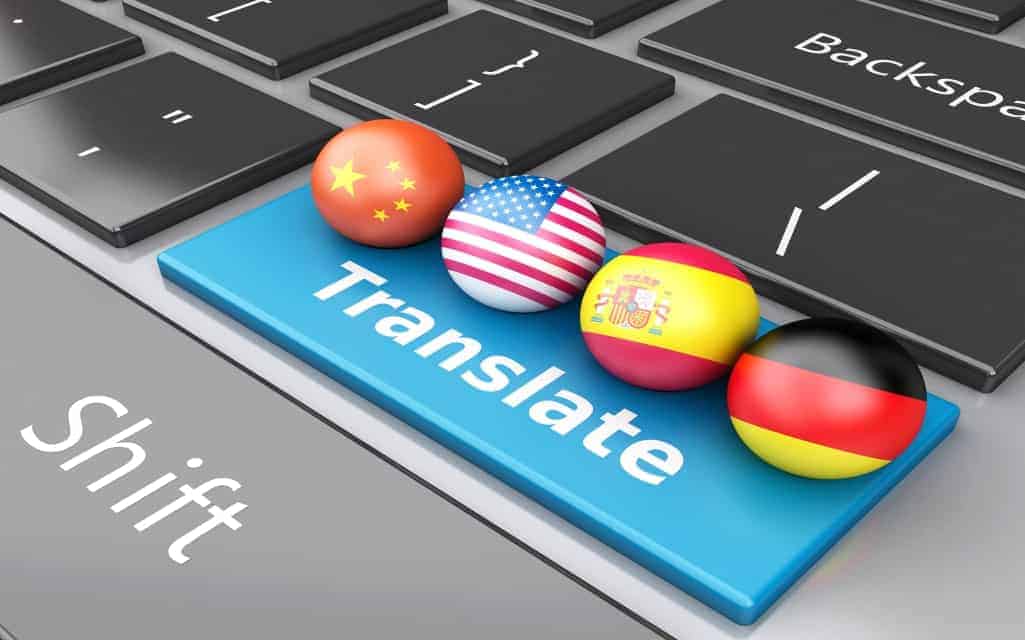Welcome to the intricate and dynamic world of the translation industry. A realm that is gaining traction globally as the need for proficient translators is becoming increasingly pronounced. This field presents an array of opportunities for individuals who are linguistically gifted and possess a desire to bridge communication gaps.
Our exploration will range from the variety of roles within the industry, the value of identifying these opportunities, to the qualifications necessary for these roles. We’ll navigate the networking landscape within the sector, discuss online platforms for job search, highlight the role of translation agencies and freelancing platforms, and delve into the specifics of translating for different industries.
Types of Jobs

Let’s begin by illuminating the diverse array of jobs within the translation sector. Often, people think of this work as solely text-based. In truth, it extends far beyond just converting written material from one language to another. At the heart of this industry lies a variety of roles including translators, interpreters, proofreaders, and localization experts. Translators predominantly handle written text, whilst interpreters focus on spoken words in real-time environments like conferences, courts, or hospitals.
An equally important role in the translation field is played by proofreaders who meticulously review translated text for errors, consistency, and appropriateness. They serve as the final quality control, ensuring translations reflect the intended message. Meanwhile, localization experts adapt a product or content to the cultural and linguistic nuances of a specific region or market. This work goes beyond just language translation, involving a deep understanding of the target culture, including its laws, customs, and market trends.
Finding Opportunities
Understanding the significance of seeking translation opportunities is a key component in embarking on a successful career path. As the world becomes more globalized, the demand for translators is escalating at a rapid pace. International businesses, governments, and NGOs are consistently in need of skilled translators to facilitate effective cross-cultural communication, opening up a broad spectrum of job opportunities.
Emphasizing the importance of locating these opportunities, it’s pertinent to note that they are not confined to traditional employment routes. Self-employment is a viable and often lucrative option. Independent contractors or freelancers can enjoy flexible working hours and the freedom to choose projects. Hence, an adept awareness of where and how to find these opportunities becomes critical for both aspiring and seasoned translators.
Online Platforms

Turning our attention to the digital landscape, several online platforms serve as invaluable resources for job-seeking translators. Websites like ProZ and TranslatorsCafé are dedicated translation job boards, offering opportunities ranging from freelance projects to full-time roles. On these platforms, translators can showcase their skills, apply for jobs, and connect with potential clients.
Apart from specialized job boards, general job sites like Indeed and LinkedIn also list translation opportunities. These platforms provide a vast array of listings across different sectors, enabling translators to explore a wide range of possibilities. Additionally, creating a strong online presence by highlighting language skills, specializations, and past projects can attract potential employers. A great online platform where you can find work is https://translatorsauction.com/blog/en/translation-jobs/.
Skills and Qualifications
Delving into the prerequisites for translation jobs, it’s essential to understand that being bilingual is not the sole requirement. Translators must have a strong command of both source and target languages, impeccable writing skills, cultural competency, attention to detail, and the ability to handle tight deadlines. They should also be adaptable, ready to learn new technologies and maintain confidentiality, as they often work with sensitive information.
Professional qualifications can enhance the prospects of finding rewarding translation opportunities. A bachelor’s degree in a foreign language, linguistics, or a related field is usually preferred. Some may opt for a master’s degree or certification programs in translation studies. Additionally, specialization in a specific industry like law, medicine, or technology could set one apart in the job market. For instance, a translator with a background in law will be more equipped to handle legal document translations.
Researching the Market

Venturing into the realm of job search, it becomes apparent that thorough research is indispensable when seeking opportunities. The starting point could be to identify sectors that consistently require translation services, such as the legal, medical, tech, or entertainment industries. By aligning one’s language skills and interests with the needs of these sectors, the odds of securing suitable roles can substantially increase.
Apart from focusing on specific sectors, one should stay updated with trends in the translation industry. Subscribing to industry newsletters, joining professional translator organizations, and regularly visiting job boards could provide valuable insights. Additionally, learning new software tools and technologies used in the industry, like CAT (Computer-Assisted Translation) tools, can enhance one’s job prospects.
Networking in the Industry
While researching job opportunities is essential, forging professional connections within the translation community could be just as beneficial. Translator conventions, webinars, and workshops are excellent venues for meeting industry professionals. Engaging in these events could provide exposure to new job opportunities and insights into industry trends.
The second facet of networking involves joining online communities, including forums and social media groups. These platforms offer an opportunity to interact with peers, share experiences, and gain invaluable advice. Active participation can help foster relationships with professionals worldwide, potentially leading to collaborations, partnerships, or job referrals.
Agencies and Freelancing Platforms

A pivotal avenue for securing jobs involves translation agencies and freelancing platforms. Agencies, such as Lionbridge and SDL, work with businesses across various sectors that need services. Registering with these agencies can open up a myriad of job prospects. They typically require translators to pass a test or submit a sample translation before getting assignments.
Freelancing platforms like Upwork and Fiverr offer a hub for translators to advertise their services and connect with clients directly. These platforms are particularly suited to freelancers looking for flexible, project-based work. However, competition can be stiff, so showcasing niche specializations and building a strong profile is vital.
Specific Industries
Our exploration of the industry wouldn’t be complete without discussing the intricacies of translating for different sectors. Legal translation, for instance, requires not only language proficiency but also an understanding of legal terminologies and processes. Similarly, medical translation demands accuracy and knowledge of medical terminology, while technical translation often requires familiarity with specific software or machinery.
Another fascinating sector is literary translation, where the translator needs to convey the author’s style, tone, and cultural nuances, aside from the literal meaning. In essence, specializing in a particular field can give translators a competitive edge, enabling them to deliver high-quality work tailored to specific industry needs.
Final Thoughts

Wrapping up this journey into the world of translation jobs, it’s evident that this industry offers an exciting blend of challenges and opportunities. It demands not only language proficiency but also cultural understanding, industry knowledge, and interpersonal skills.
By leveraging these insights into the types of jobs, the value of seeking opportunities, required skills, research strategies, networking avenues, and online platforms, aspirants and professionals can effectively navigate the industry. And by focusing on translation agencies and specific industry needs, they can find rewarding careers that truly make a difference by bridging linguistic and cultural gaps worldwide.

